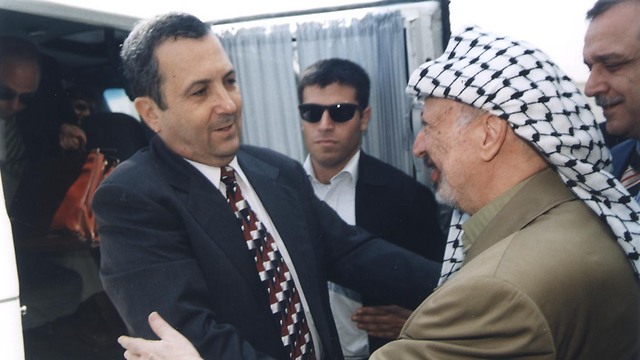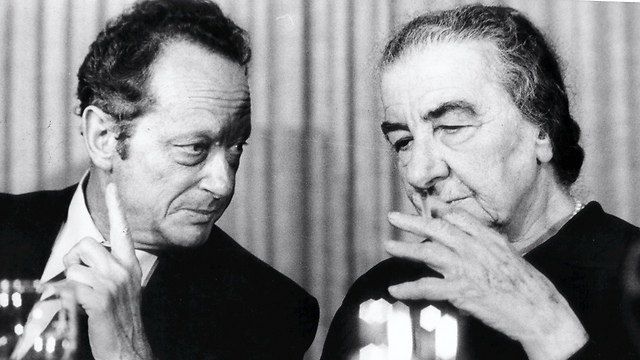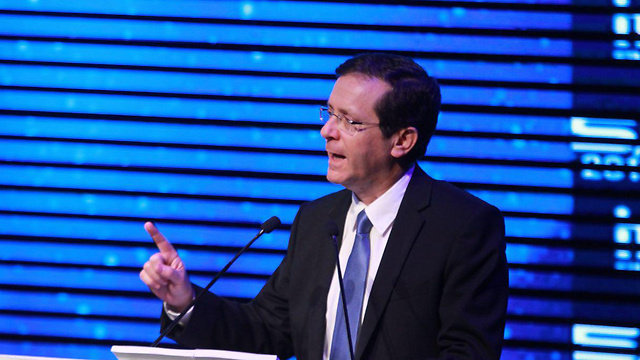
Isaac Herzog
צילום: גיל יוחנן
Say goodbye to the fantasy of peace
Op-ed: Herzog's statement about the non-viability of peace these days is a big step in the right direction for the Labor party. If only it can let go of fantasy and embrace reality, it can improve Israeli politics on both sides of the aisle.
Opposition leader Isaac Herzog's comment saying there's no chance of peace in this era is the most dramatic event to happen to Israel's Labor party in the past decade. After the elections, Herzog was accused of going to bed instead of following the results. In retrospect, it seems that he's the only one who's actually staying alert in the party. This is the first time since the days of Ehud Barak that the Labor party has contended with the difficult reality of the Middle East. For the first time, one of its leaders has acknowledged the shortcomings of peace, not just those of war.



Things weren't always so for the party that built the State of Israel. Yigal Alon was the first person to understand, following the Six Day War, that it was impossible to return to the old borders. He understood very well that a peace accord with the Palestinians is different from planning peace with Arab nations that have a well-defined topographic border, and so he planned for an internal separation that would mean annexing large parts of the area, and leaving the rest under Jordanian control. Israel Galili, who served as the chairperson of the Ministerial Committee for Settlement (unlike the parody-like committee that was formed on Monday), built towns according to the lines Alon drew on the map.

Former PM Barak with former Palestinian President Yasser Arafat. Barak later understood Israel has no partnet for peace. (Photo: Israel Hadari) (ישראל הדרי)
Rabin, who found himself promoting mid-way agreements, made sure to say he would not agree to a Palestinian state in the 1967 borders. Finally, Ehud Barak was the one who said loud and clear that there was no one with whom we could make peace, after the failure of the Camp David talks in 2000.
There was something about these people that marked the old Israel, and the Labor party – for good and for bad. They had the idea of peace in them, with the complete package of prayers and sentimental songs, and at the same time they had their hand tightly on the grip of their weapons. Rabin used means like expulsion and home demolition at a rate no right wing government would dare reach today. He spoke of peace and exercised power, because he knew that words also have their limits.
All of this has been abandoned by the Israeli Labor party in the past decade. Instead of handling the reality of a peace accord's absence, they kept babbling mantras about searching for good will. There were those who slid diplomatic matters to the side, dealing with economic problems instead. Some made sure to emphasize the idea of striving for the non-existent. The bottom line is that Amram Mitzna, Amir Peretz, and Shelly Yechimovich lost their ability to create an alternative. Not because the party's leaders all got taken down quickly, but because the idea of a peace agreement itself was taken down.

Yigal Alon (left). Understood from the start that the pre-1967 borders were irrelevant. (Photo: Shalom Bar Tal) (צילום: שלום בר טל)
And what about the Likud, you might ask. It, like the Labor party, has been making promises it has no chance of keeping for a while now. Starting with Netanyahu's promise to defeat Hamas, and ending with a clear right-wing policy (and as the recent Hebron homes controversy shows, the only thing that's clear about it is that it's no different than previous governments' policies). Yes, the Likud also acknowledges the limits of reality, while at the same time promises things for the sake of promising.
The difference between the Likud and Labor – between the Labor's preposterous platform and the Likud's non-existent one, between Netanyahu and Herzog, is their different beliefs. The Labor party demands its voters believe in the miracle that the Palestinians will become partners for peace, and the Likud asks that its voters believe that other parties will be worse than them. Belief in what can be seen.
Back to Herzog: The attacks against him for saying that we can't achieve peace at this time shows us the difficulty of contending with the world of political ideas. His critics prefer that he lie and promise the if only he was given a mandate and placed in a room with Abbas – he'd bring peace. They want him to say whatever he wants – but not the truth.

Isaac Herzog. Could be the first Labor leader in a while to shape the political discourse. (Photo: Motti Kimchi) (צילום: מוטי קמחי)
I have nothing against the Labor party. I've been voting for its rivals from a young age, and still I want to see it get back on the combative political path. Why? Because if its leaders make their positions clear regarding a Palestinian Authority that incites people to commit terrorist acts, and regarding a people who have no will or ability to sign agreements, then this will also pressure the Likud to clarify its own positions. The bland argument of the past few years will be gone if we were to know what each party is proposing on the diplomatic front. If Herzog doesn't back down, he'll be the first Labor party leader in years to actually shape the political discourse as opposed to dragging along behind it.










